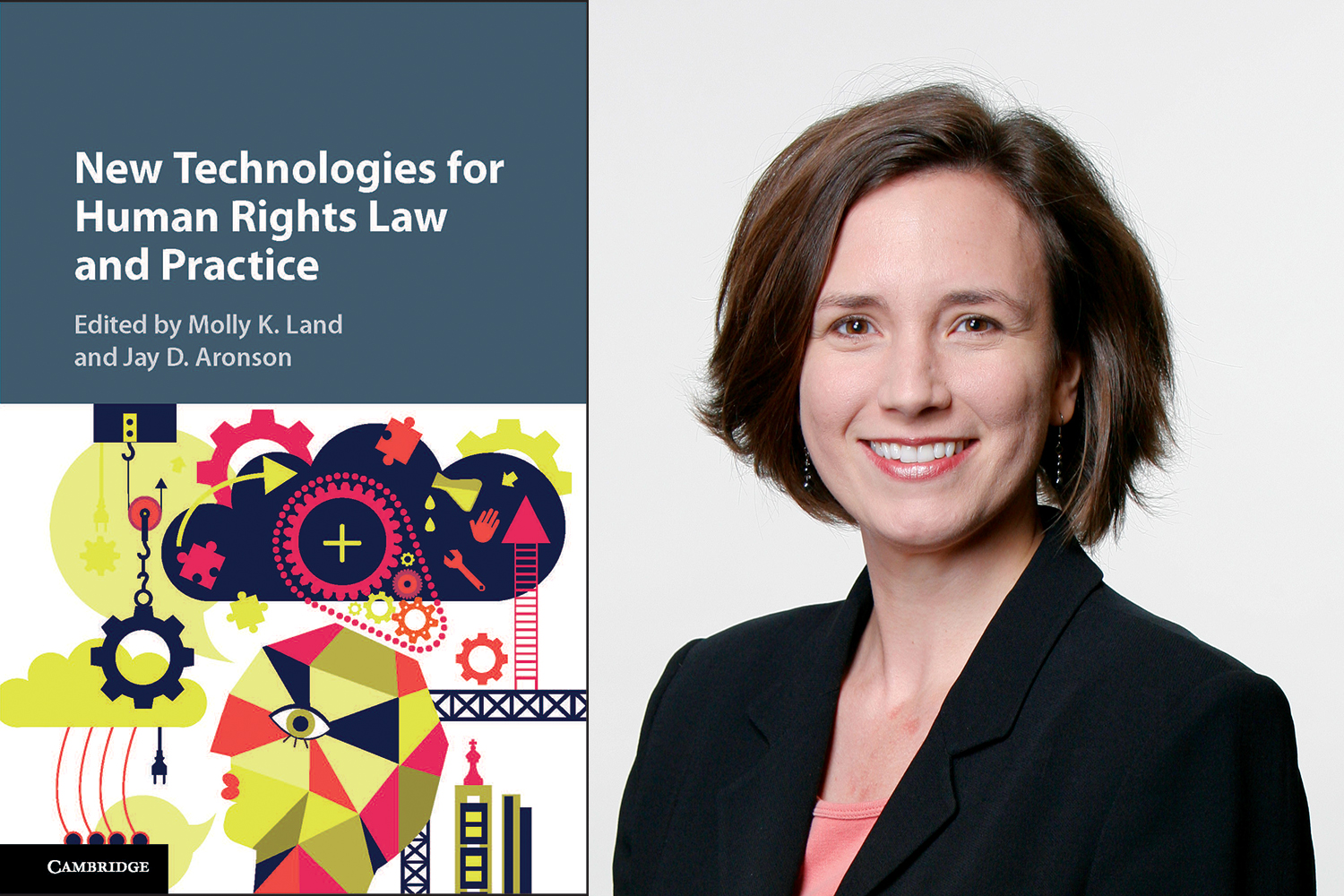A new book co-edited by UConn Law Professor Molly K. Land examines the rapidly evolving relationship between technology and human rights and takes a suitably innovative approach to distribution — the book is fully open access.
On April 19, 2018, Cambridge University Press released “New Technologies for Human Rights Law and Practice,” edited by Land and Carnegie Mellon Professor Jay D. Aronson, in both digital and printed formats. It may be downloaded at no cost from the Cambridge University Press website or purchased as a hardcover book.
The book examines how technological innovations ranging from social media and big data to drones and water meters can promote or challenge human rights. “Technology is often seen as a means to shift power to the powerless,” Land writes in the introductory chapter. But resources are not often invested in technology that benefits the poor, meaning innovation “may be fundamentally skewed toward inequality.”
The powerful role of private companies in determining how technology affects privacy and other human rights is also a recurring theme in the book. The importance of bringing human rights considerations into play as early as possible in the development of new technology is another.
Equality is also a concern of Land’s and of the other 14 scholars who contributed to the book, which led to the decision to provide the book on an open access basis. UConn and Carnegie Mellon provided financial support to minimize the publisher’s risk that free digital access will undercut sales of the printed book, a concern that Land said may start to fade as the practice becomes more common.
“Jay and I realized from the outset that we just couldn’t publish a book on the opportunities and risks of technology for human rights without making it open access. Even though technology can be a powerful force for good, the most vulnerable members of society bear most of its risks but don’t enjoy most of its benefits,” Land said. “In publishing, too, the Internet makes it incredibly easy to share knowledge, but we lock that knowledge up behind paywalls and licenses. Jay and I wanted to see if we could help make the case that open access publishing is not only the right thing to do, but also fully consistent with the business models of traditional publishers.”
Land, a member of the UConn Law faculty since 2013, is also associate director of the university’s Human Rights Institute. Her scholarship focuses on the effect of new technologies on human rights fact-finding, advocacy, and enforcement, as well as the role of human rights norms and framing.
Aronson, is an associate professor of science, technology and society in the History Department at Carnegie Mellon University. His current research concerns the acquisition and analysis of video evidence in human rights investigations.



